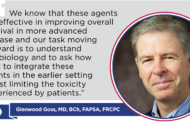The IASLC 2023 World Conference on Lung Cancer will take place at the Suntec Singapore Convention & Exhibition Centre. Singapore is an island city-state in Southeast Asia. Known as a global hub for healthcare, education, entertainment, and finance, Singapore is often recognized as a top destination for international meetings.
Getting Around
Suntec Singapore is in the heart of Singapore’s central business district, which is connected to three Mass Rapid Transit (MRT) lines and major highways. Singapore has a well-developed public transportation system with different ticket types so that you can get to where you want to go easily and conveniently.
By Train (Mass Rapid Transit)
Singapore’s MRT has six lines—North South (Red), East West (Green), North East (Purple), Circle (Orange), Downtown (Blue), and Thomson-East Coast (Brown). Most MRT trains run from 05:30 to midnight every day. This is the quickest and most convenient way of getting around Singapore. You can choose from the different ticket types or purchase a tourist travel pass. For more information, visit Singapore’s Land Transport Authority.
By Bus
Singapore also offers a bus system with an extensive network throughout the city. There are various types of tickets or passes. More information about the bus system can also be found on the Land Transport Authority’s website.
By Taxi
Getting a taxi in Singapore is easy. You can hail a taxi at most places, or you can find them queuing at most hotels, shopping malls, and major attractions.
Language & Customs
Singapore has four official languages—English, Mandarin, Malay, and Tamil. English is the primary language used and is used in all the regions in Singapore.
The currency used in Singapore is the Singapore dollar ($). Notes come in $2, $5, $10, $50, $100, $1,000, and $10,000 increments. Coins come in 5, 10, 20, and 50 cents and $1. Exchanging money is typically best done at a designated money exchange service as banks sometimes charge high fees.
Tipping is encouraged at hotels, restaurants, and taxis. However, some restaurants include a service charge on the bill. If this is the case, there is no need to add an additional tip. Also, tips usually are not expected at food stalls, cafes, or bars.
Visa Requirements
Citizens of many nations, including members of the European Union, Australia, Canada, New Zealand, Norway, South Korea, Switzerland, and the United States are eligible for a 30-day social visit pass on arrival in Singapore and do not require a visa. However, citizens of certain countries do require tourist visas, and anyone planning to work in Singapore must apply for the appropriate permits.
In addition to visas for travelers from certain countries, all visitors to Singapore must meet the following entry requirements:
- Valid travel document (i.e. passport) with minimum validity of 6 months at the time of departure
- A submitted SG Arrival Card
- Confirmed onward or return tickets
- Entry facilities, including visas, to the next destination
- Sufficient funds to maintain themselves during their stay in Singapore
- Comply with prevailing public health requirements, including proof of yellow fever vaccination, if applicable (see below).
For details on entry visa requirements, visit the Singapore Immigration and Checkpoint Authority website.
Public Health Requirements
There are no longer any COVID-19 measures for travelers arriving in Singapore, however visitors to Singapore must fulfill certain public health requirements to avoid tests or quarantines. Travelers who cannot meet the public health requirements and refuse any test(s) and/or quarantine may be turned away from Singapore.
If you have visited any country at risk of yellow fever transmission in the previous 6 days before your arrival in Singapore, you must have an international certificate of vaccination for yellow fever. Visitors must serve quarantine for up to 6 days on arrival if they cannot meet the requirement. Quarantine also applies to those who are ineligible to receive the vaccination, including children under 1 year of age and individuals with contraindications.





